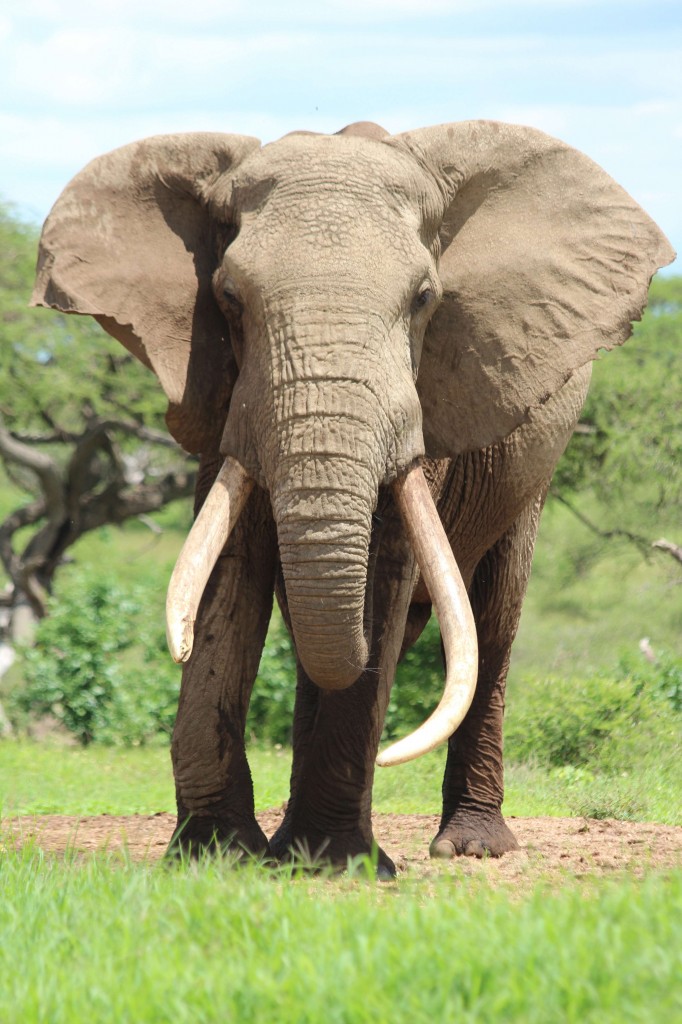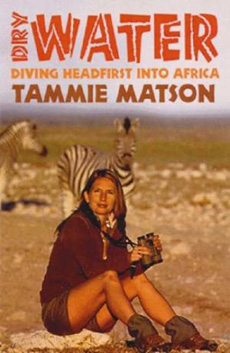Ebola’s impact on elephants
Don’t worry, elephants don’t get ebola. Well not as far as I’m aware! But that doesn’t mean they won’t be severely affected by the disease in other ways. Indeed, elephant populations will very likely be impacted indirectly and I think we should be very concerned about what’s happening at the moment.
Next week, conservationists from all around the world will gather in Sydney for the World Parks Congress, including my very own co-founder of Let Elephants Be Elephants, Nadya Hutagalung, who will be speaking at the world leaders dialogues with the head of CITES, Director General of WWF, Ministers of Environment of Australia and South Africa, and several other esteemed influencers. They’ll be discussing the conservation of protected areas around the world. Meanwhile, a crisis is unfolding in Africa and in this case it’s something that the general public has a big role to play in solving.
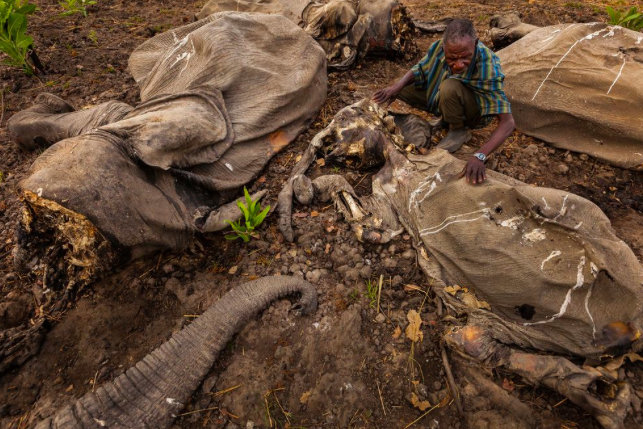
Scenes of devastation like this are becoming increasingly common in Africa, with 2/3 of Central Africa’s elephants having been illegally killed in the last decade (photo credit: National Geographic)
As you all know (because I do talk about it a lot!), African elephant populations are being devastated by the highest levels of poaching seen in decades. The rise in illegal killing is being driven by an increase in demand for ivory from Asia, especially China, and is the result of rising wealth across the region. At current rates of poaching, the African elephant population may have as few as 15 years left.
However a compounding threat is emerging in the form of ebola, due to the negative effect of the disease on tourism across sub-Saharan Africa. Anyone who’s been on safari in Africa can tell you how essential tourism is to the wellbeing of both local communities and wildlife in remote rural areas in Africa because of the far reaching socio-economic benefits it provides. When tourism dollars drop off, local indigenous people turn to alternative income options, like agriculture or even poaching, with devastating impacts on wildlife.
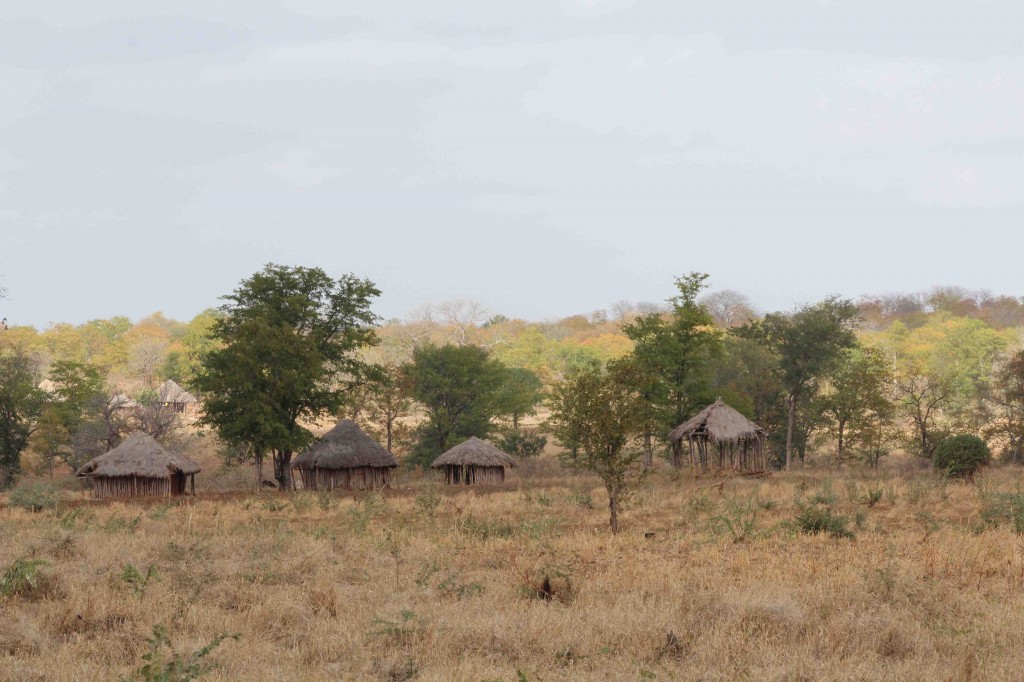
Land that is not providing economic opportunities to local people through tourism will be converted to other land uses, like agriculture, as I’ve seen happen in the Save Valley Conservancy when tourism dropped off in the early 2000s
Ignorance among the general public globally of the location of ebola-affected countries in relation to the rest of Africa is making things worse. So here are the facts. The ebola pandemic is confined to three main countries – Sierra Leone, Guinea and Liberia, all of which are in west Africa, a very long way from the typical safari destinations in places like Botswana, Namibia and Kenya. There are about 8000km between the ebola hotspot of Liberia and the safari areas in Botswana, and over 7000km between Liberia and Nairobi, Kenya . There are no direct flights to either region from Liberia – you have to connect through other countries. Liberia is closer to London, Paris and Rome than it is to these safari destinations in Africa.
Nonetheless, safari operators across sub-Saharan Africa are noticing a significant downturn in future bookings, as well as an increase in cancellations. There have been more cases of ebola in America than there have in sub-Saharan Africa in this outbreak, so you’d be more at risk there than on safari in South Africa. But the perception that safari areas could have ebola, even though they don’t and are miles away, is damaging tourism, which ultimately will make wildlife conservation efforts much harder. I think we’ll see the poaching of elephants and rhinos escalate as a result of the downturn in tourism in Africa if people don’t realise they are not in danger of contracting the disease by going on safari. And I’m not the only one who thinks so; according to this article in The Daily Beast, ebola could deal the death blow to many of Africa’s communal conservancies, which are crucial buffer zones around the continent’s limited national parks.
Since 2006, the number of elephants being poached annually has been rising, driven by an increase in the demand for ivory from Asia. A report just released in August in the Proceedings of the National Academy of Sciences reported that more than 100,000 elephants were illegally killed between 2010 and 2012. There are less than 500,000 elephants left in Africa, perhaps as few as 350,000. The current levels of poaching are not sustainable as they exceed the natural population growth rate of elephant populations.
We have very real reason to be alarmed because tourism is so essential to the continued survival of elephants in the wild.
There are very real solutions that are achievable and you can help.
- Never buy ivory. Tell your friends not to buy ivory when on holiday in places like China and Thailand. Visit http://www.letelephantsbeelephants.org and take the pledge not to buy ivory, then share the videos and facts with your friends on social media.
- Go on an Africa safari that supports local people and allows them to make a living for them and their families through tourism and conservation. If you’ve already booked a safari, don’t cancel it. You’re not at risk in the main safari countries as they do not have ebola and are taking serious measures to ensure it does not reach their shores.
I’ll be heading over to Botswana with a group of Australian and Singaporean travellers in a couple of weeks, feeling comfortable in the knowledge that there hasn’t been a single case of ebola there. It’s been heart breaking to watch the devastation unfolding in west Africa as ebola takes its horrific toll on the human population. Let’s hope that with all the international aid finally going into west Africa that the disease can be brought under control soon.
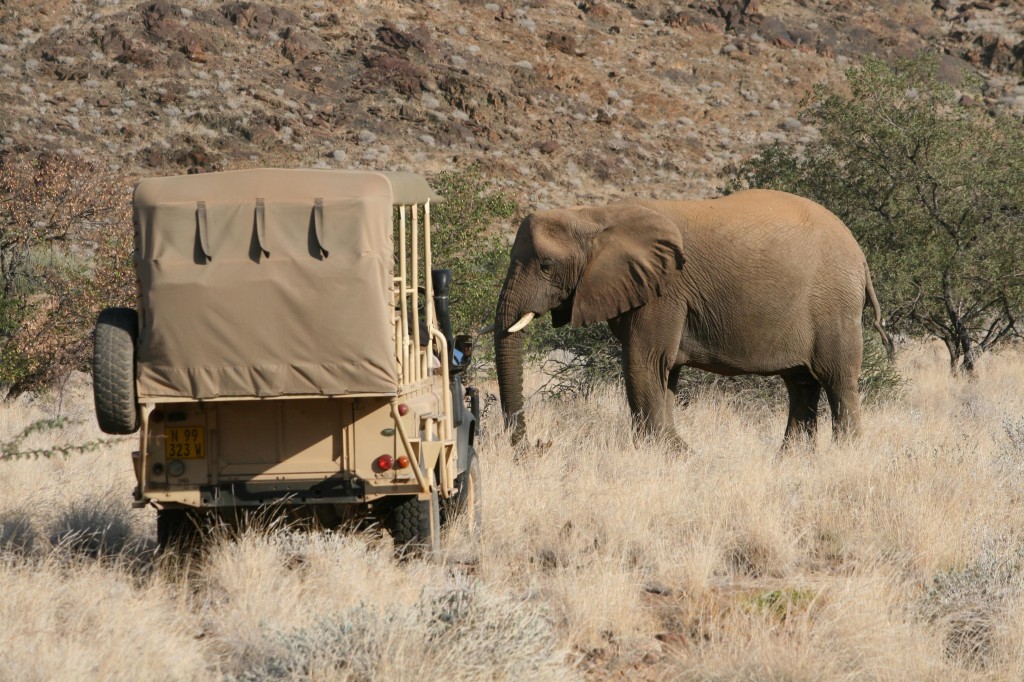
Getting up close to an elephant on safari is one of the most special experiences you’ll have in your life (I took this shot in Namibia)

